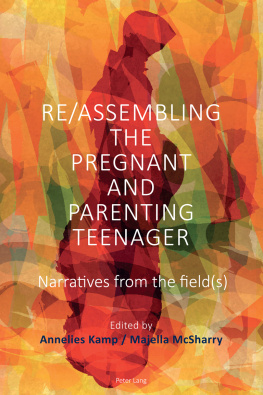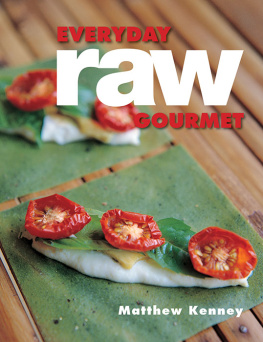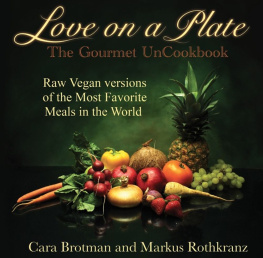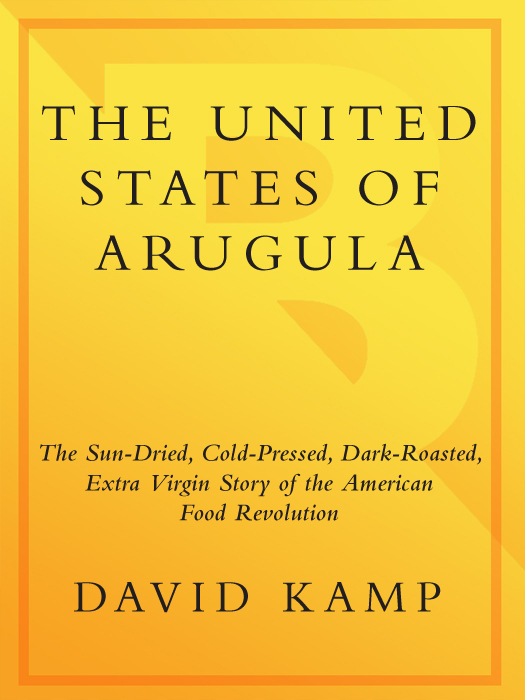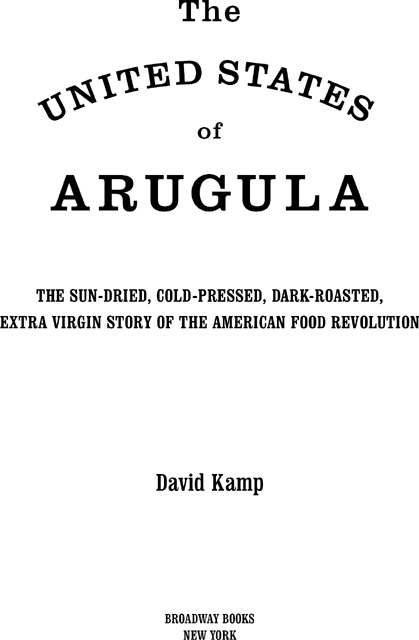Praise for
The United States of Arugula
Delightful. A serious-minded examination of the flowering of food culture in this country thorough and engrossing deliciously entertaining.
Seattle Post-Intelligencer
[A] Rollicking and gossipy history of how we became a gourmet nation.
Entertainment Weekly
The depth and breadth of Kamps research are clear. The results are impressive. While Kamp is an excellent writer, he set out to do more than turn memorable phrases. This isnt a tone poem, a travelogue, a memoir. Its thoroughly journalistic, built on retrieved facts, discovered anecdotes, and fresh interviews.
Frank Bruni, Diners Journal, New York Times
A must-have directory for any respectable gourmand, a venerable reference that deserves a spot next to Irma Rombauers Joy of Cooking and Julia Childs Mastering the Art of French Cooking. Kamp has accomplished a marvelous feat in collecting the telling details and anecdotes of those who have helped shape American tastes. Reading him is like gathering around the prep table gossiping with the line cooksthe kind who can really dish and who have seen everything, including that piece of rare tuna dropped on the kitchen floor and served for $28.99. Kamp writes about chefs the way sports reporters write about star athletesdetailing the motivations, training, shortcomings, and conflicts that have made them who they are.
Chicago Sun-Times
With admirable lightness of touch, Kamp uses food to suggest a broader history, a tale of tastes and trends embedded in the grand epic of American consumer capitalism.
A.O. Scott, New York Times Book Review
A comprehensive and dazzling book about the history of food in America The book is full of encyclopedia-quality tidbits, both in the text and in his particularly entertaining footnotes. However, the primary virtue of the book is Kamps insightful sketches of everyone in the food world you have ever admired and quite a few that you probably forgot you knew. If hes missed anybody, its the guy running a bodega at the end of your block. You will never be able to make up for all the wonderful meals youve missed over the years, but now you can find out how good they all would have been.
Alan Richman, GQ
Kamp chronicles change in the American diet with humor and enthusiasm. In a nation of fad diets and obesity epidemics Kamps history succeeds in provoking pride, understanding, and, most important, appetite. He relies on exceptional storytelling to weave gourmet figures into generational tapestries, tying together personal and cultural history. The United States of Arugula vividly portrays several eras of American culture while leaving the reader genuinely pleased with the changes in our national diet.
American Heritage
This book is a great read: witty, warm, informative, well-researched. It begged to be written, and David Kamp has done it just right.
Mollie Katzen, author of Moosewood Cookbook
Kamps an excellent writer. He uses his prodigious research, sly humor and storytelling skills to illuminate the back stories of well-known food-centric businesses such as Chez Panisse, Williams-Sonoma and the Zagat guides. He evenhandedly recounts foibles and missteps even as he celebrates the entrepreneurial derring-do that has provided Americans with new cuisines.
USA Today
Kamp brings a colorful pop-culture sensibility to his portrait of the personalities and places that have helped spread the gospel of good food beyond a gourmand elite and into middle America.
Salon.com
A great book. If you want to know how we got to where we are as a culture, put this on your must-read list.
Michael Colameco, WOR radio
A smart, engaging account of how serious foodies brought fresh, new, and delicious meals to American tables. Kamps deep understanding, appreciation, and respect for the key players in this history make his book a riveting read.
Marion Nestle, author of Food Politics and What to Eat
TO AIME
CONTENTS
INTRODUCTION
A World Without Celebrity Chefs
CHAPTER ONE
CHAPTER TWO
CHAPTER THREE
CHAPTER FOUR
CHAPTER FIVE
CHAPTER SIX
CHAPTER SEVEN
CHAPTER EIGHT
CHAPTER NINE
CHAPTER TEN
CHAPTER ELEVEN
CHAPTER TWELVE
PREFACE
MOST OF US HAVE AT LEAST ONE RAPTUROUS FOOD MEMORY FROM CHILDHOODOF fresh-baked Saturday-morning popovers, of sweet little strawberries picked in the wild, of a Cantonese lobster dish unveiled from beneath a dome at some dimly lit place with a name like Jade Pagoda. But I must confess, in defiance of societal pressure to view ones bygone youth as a magical idyll of unsurpassable delights, that these memories pale completely in comparison to those I have of, oh, last week. Virtually every day of my adult life, Ive been fortunate to eat something I simply never tasted as a young child. Im talking not only about fancy foods, like white truffles and aged balsamic vinegar, but about commonplace, nonevent stuff: a tortilla chip dipped in salsa, a handful of picholine olives, a pat of goat cheese on a cracker, a crumble of aged pecorino, a fresh croissant.
Amazingly, these things were either unavailable in my youth or sufficiently scarce that my family didnt know about them. I remember attending a wedding in 1984, when I was in my teens, at which a cousin from San Diego, where they were more food-forward than us East Coasters, grimly surveyed the restaurants and markets of the dire Pennsylvania town where wed gathered, and said, Dude, you people need to learn about salsa. My response: Whats salsa? I remember my mother, in 1978, returning from a business trip to Palo Alto, California, and telling us that her associates had taken her to a Japanese restaurant where they served something called sushi, and that when some of this sushi was placed before her, the restaurants watchful Japanese proprietor, somehow sensing that my mother was a sushi novitiate, sped across the room, and, like a Secret Service agent taking a bullet for the president, inserted himself bodily between my mother and the table, crying Raw fish! Raw fish!
Suffice it to say, salsa, if I may toss out an oft-cited food factoid, has surpassed ketchup as Americas most popular condiment, and sushi has become so unthreatening that Schnucks, the St. Louisbased supermarket chain whose eminently Midwestern, howdy-do slogan is The Friendliest Stores in Town, now features a sushi bar in many of its locations. In other words, Im not the only one who has come a long way culinarily. Judy Rodgers, whose San Francisco restaurant, Zuni Caf, was named the Outstanding Restaurant in America at the 2003 James Beard Foundation Awards, and who herself won the foundations Outstanding Chef Award the following yearthe food-world equivalent of winning Best Picture and Best Director at the Oscarswas originally a St. Louis girl, and she recalls that in her youth in the 1960s, white corn was considered outr. (I didnt like it, she says. I liked yellow corn.) Today, as you might expect of a chef whose restaurant is named for a Southwestern Indian tribe but whose primary influences are country French and rustic Italian, Rodgers has gotten a lot more adventurous. Her menus feature items as varied as house-cured anchovies, homemade spaetzle, short ribs braised in ale, pasta alla carbonara, grilled meats marinated in the Argentinian chili-vinegar mixture known as


